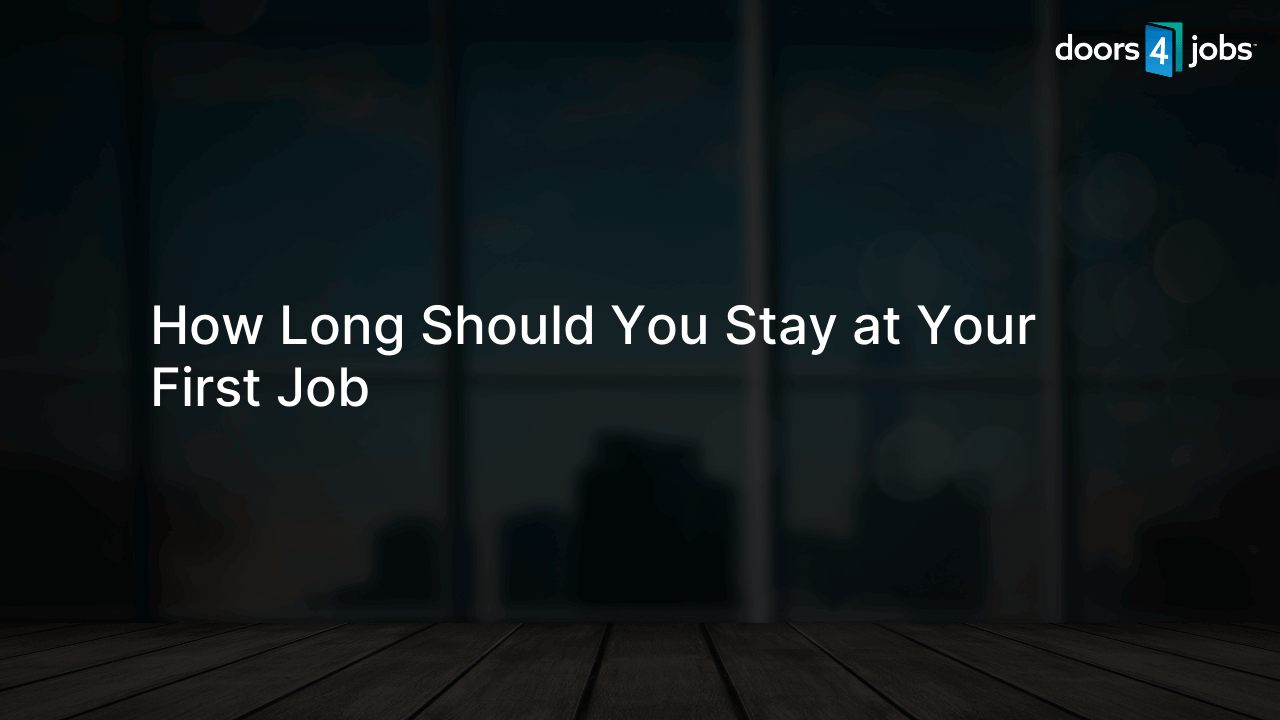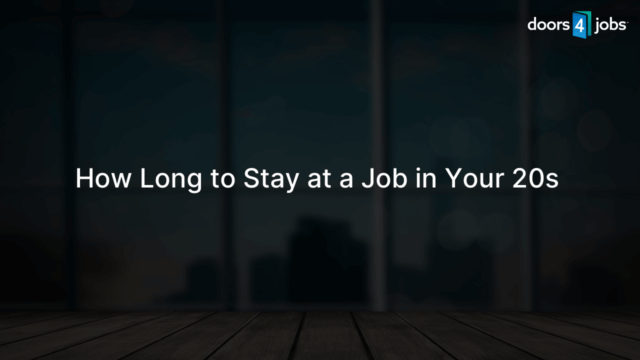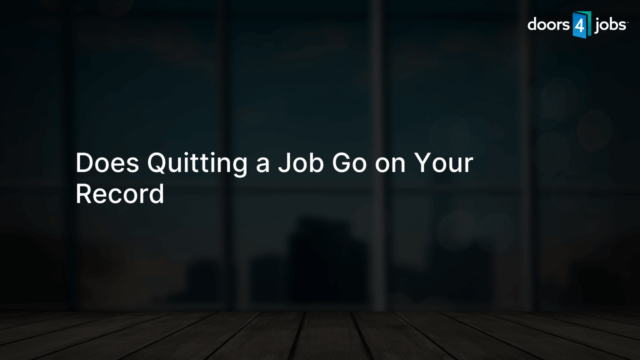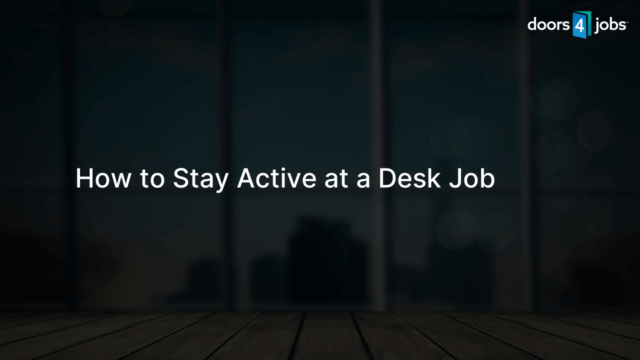You should stay at your first job for at least one to two years to gain valuable experience, build a professional network, and demonstrate commitment to potential future employers.
Why the First Job Matters
The first job plays a crucial role in shaping your professional identity, work ethics, and overall career trajectory. Staying at your first job for the right amount of time can make a significant impact on future career opportunities.
Importance of Experience and Building Networks
As a newcomer to the professional world, gaining experience and building a strong professional network should be your main focus. Staying at your first job for a minimum of one to two years can help you achieve this goal, while also improving your skills and boosting your resume.
Developing Relevant Skills
Professionals often acquire most of their skills on the job. By staying at your first job for one to two years, you get a chance to learn essential skills that can be valuable for your future job prospects. Make the most of your time by taking on challenging assignments and projects.
Establishing Professional Relationships
Building a professional network is crucial for career growth. In your first one to two years at a company, focus on establishing strong relationships with colleagues, supervisors, and mentors. These connections can serve as a foundation for future job referrals, recommendations, and career advancement opportunities.
Maintaining a Commitment to Your Employer
Employers value employees who demonstrate loyalty and commitment. Staying at your first job for an extended period shows potential employers that you are reliable and capable of bringing value to their organization. Job hopping too frequently can raise red flags for future employers.
Assessing Your Career Progress
Regularly evaluate your career progress while staying at your first job. Set objectives for your professional growth and work towards achieving these goals. Assess your job satisfaction and alignment with your long-term career plans. If you feel stuck or dissatisfied in your role after two years, it may be time to explore new opportunities.
When to Move On
While it’s good to stay at your first job for one to two years, there are situations where leaving earlier might be necessary. Such instances include a toxic work environment, personal conflicts, or the company’s financial instability. In these cases, prioritize your mental health and professional well-being and start looking for new opportunities.
Factors Influencing Your Decision to Stay or Move
When deciding whether to stay at your first job or move on, consider factors such as career advancement, financial growth, work-life balance, and job security. Weigh out the pros and cons of staying at your current position or accepting a new opportunity.
Opportunities for Career Advancement
Consider whether your first job offers opportunities for promotions and career advancement within the company. If you see a clear path for growth, staying at your first job for a longer period may be beneficial.
Financial Growth
Salary and benefits are crucial factors when considering your first job. As you gain experience, evaluate if your financial needs are being met, and if not, discuss your concerns with your employer or explore other opportunities.
Work-Life Balance and Job Satisfaction
Work-life balance is essential for your well-being. Ensure that your first job does not negatively impact your personal life. Consider moving on if you feel overwhelmed, stressed, or dissatisfied with your role or work environment.
Job Security
Stability and job security are essential for long-term career planning. If your first job is in an unstable industry or your company is facing financial difficulties, it may be best to seek new opportunities.
Preparing for a Job Change
If you decide to leave your first job, prepare for a smooth transition. Here are some tips to help you navigate this change:
Update Your Resume and Portfolio
Ensure your resume reflects your accomplishments and the skills you’ve acquired in your first job. Update your online presence and portfolio to showcase your experience and professional growth.
Network and Connect with Professionals
Utilize your professional network to explore new job opportunities and to seek advice on career moves. Attend industry events, join online forums, and stay connected with former colleagues and mentors.
Research and Plan Your Next Job
Before applying for new positions, research potential employers and determine if their values and work environment align with your expectations. Identify the skills needed for your target roles and prepare for interviews accordingly.
In conclusion, the optimal duration for staying at your first job depends on your individual circumstances and career goals. Aim for a minimum of one to two years to demonstrate commitment and gain valuable experience before considering new opportunities.
Frequently Asked Questions
If you still have concerns about how long you should stay at your first job, here is a list of commonly asked questions with direct and informative answers to help guide your decisions.
Is it okay to leave my first job within the first year?
It’s preferable to stay at your first job for at least one to two years. However, if you face issues like a toxic work environment, personal conflicts or lack of growth, leaving within the first year might be necessary.
How do I know it’s time to move on from my first job?
You may consider moving on when you feel dissatisfied with your current role, lack opportunities for growth, or face issues like a toxic work environment, personal conflicts or company instability. Assess your career progress regularly against your goals to determine the right time to move.
Will leaving my first job too early hurt my career?
Leaving your first job too early can raise concerns for future employers about job-hopping and commitment. However, if you have valid reasons for leaving and can present them professionally, it should not be a significant detriment to your career.
How can I make the most of my time at my first job?
To make the most of your first job, focus on developing relevant skills, taking on challenging tasks, and building a strong professional network. Engage in continuous learning and interact with colleagues and mentors for guidance and support.
What should I do before leaving my first job?
Before leaving your first job, update your resume and portfolio, network with professionals, research potential employers, and plan your next job move. Ensure a smooth transition when leaving by providing proper notice and being professional throughout the process.











